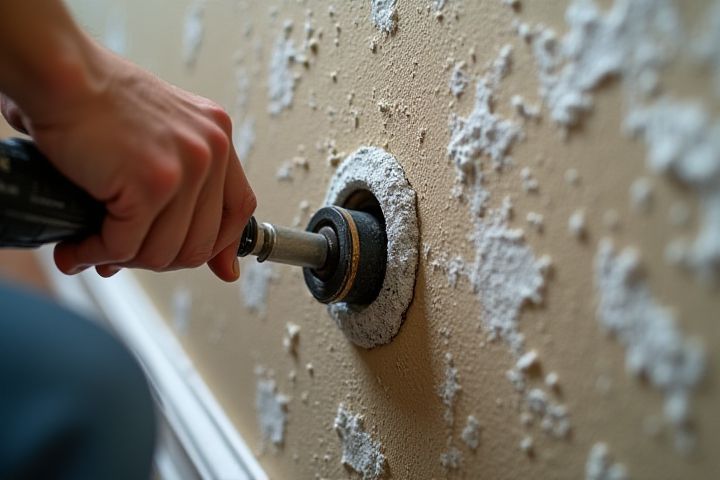
Regular house maintenance is crucial for preserving property value and ensuring safety. Key tasks include inspecting and cleaning gutters to prevent water damage, which can lead to mold and structural issues. HVAC systems require seasonal maintenance, ensuring efficient operations and improving indoor air quality. Regularly checking smoke detectors and carbon monoxide alarms can save lives by providing critical early warnings. Finally, assessing the roof for leaks or damage protects your home from weather-related problems, emphasizing the importance of routine inspections.
What House Maintenance Is Essential
Regular HVAC system servicing
Regular HVAC system servicing is crucial for maintaining optimal indoor air quality and energy efficiency in your home. Studies show that scheduling professional maintenance at least twice a year can extend the lifespan of your system by 5 to 10 years while reducing energy consumption by up to 15%. During servicing, technicians inspect crucial components such as filters, coils, and ductwork, ensuring they are clean and functioning efficiently, which can save you up to $50 monthly on energy bills. By prioritizing HVAC maintenance, you not only enhance comfort but also protect your investment in your home's heating and cooling system.
Roof inspections and maintenance
Regular roof inspections are crucial for identifying potential issues such as leaks, missing shingles, or structural damage. Maintenance tasks like clearing debris, replacing damaged tiles, and sealing flashing can prolong your roof's lifespan. It's advisable to schedule professional roof inspections at least once a year, especially after severe weather events. Investing in timely roof maintenance not only enhances your home's structural integrity but also protects your property value.
Gutter cleaning and repair
Gutter cleaning and repair are critical for preventing water damage to your home, particularly during heavy rainfall. Typically, it's advisable to clean your gutters at least twice a year, ideally in spring and fall, to remove debris, leaves, and dirt that can lead to blockages. Regular inspections can help identify signs of wear or damage, such as rust, sagging, or leaks, with repairs often costing between $150 to $500 depending on the severity. Clogged or damaged gutters can result in costly issues like foundation erosion, mold growth, and landscape destruction, making timely maintenance an essential part of home care.
Plumbing system checks
Regular plumbing system checks are crucial for maintaining a safe and efficient household. Inspecting your pipes for leaks and corrosion helps prevent water damage and mold growth. It's essential to ensure that drains are unclogged and free from debris to avoid slow drainage and potential backup issues. Scheduling periodic inspections by a licensed plumber can help identify early signs of wear, ensuring your plumbing system remains in optimal condition.
Electrical system safety inspections
Regular electrical system safety inspections ensure your home meets national safety standards. Experts recommend conducting these assessments at least every three to five years to identify potential hazards, such as outdated wiring or overloaded circuits. During an inspection, a qualified electrician can check for grounding issues, circuit integrity, and proper functioning of circuit breakers--reducing the risk of electrical fires, which account for approximately 51,000 incidents annually in the U.S. Proactively addressing any identified issues can enhance the safety and efficiency of your home's electrical system.
Foundation inspection for cracks or shifts
Foundation inspection is crucial for maintaining your home's structural integrity, as even small cracks or shifts can lead to significant issues. Regularly checking for cracks wider than 1/8 inch or noticeable shifts can reveal underlying problems that may affect the safety of your property. Inspect your foundation's exterior for signs of water pooling or inadequate drainage, which can exacerbate shifting and cracks. Addressing these issues promptly can save you between $2,000 and $10,000 in repairs, protecting your investment and ensuring a stable living environment.
Pest control measures
Regular pest control measures are crucial for maintaining the integrity of your home and preventing costly damages. You should consider scheduling professional inspections at least twice a year, as studies show that homes with proactive pest management are 50% less likely to experience infestations. Implementing integrated pest management techniques, which may involve methods like sealing entry points and using traps, can significantly enhance your home's defense against common pests such as rodents and termites. Remember, a small investment in pest control today can save you thousands in repairs down the line.
Check for water leaks and seal them
Regularly checking for water leaks in your home can prevent significant damage and costly repairs, with average water leak costs estimated at around $1,100 annually. Inspect areas such as faucets, toilets, and under sinks where leaks are most common; even a small drip can waste more than 3,000 gallons per year. Sealing leaks promptly not only conserves water but also enhances energy efficiency, potentially reducing your utility bills by 10% to 15% on average. Testing the water pressure in your plumbing system can further help identify hidden leaks, ensuring your home remains safe and efficient.
Maintain smoke and carbon monoxide detectors
Regular maintenance of smoke and carbon monoxide detectors is crucial for ensuring your safety. You should test these devices at least once a month by pressing the test button and replacing batteries every six months. Additionally, it's recommended to replace the entire unit every 10 years, as the sensors can degrade over time. Keeping these detectors well-maintained significantly reduces the risk of fire and poisoning, safeguarding both your property and loved ones.
Clean and maintain appliances regularly
Regular cleaning and maintenance of appliances can significantly extend their lifespan, ensuring optimal performance. For instance, the average refrigerator should be cleaned every three to six months, including defrosting if necessary. Dishwashers benefit from monthly maintenance, which involves checking filters and cleaning spray arms to prevent clogs. Neglecting these tasks can lead to increased energy bills, often by as much as 15%, and costly repairs, ultimately impacting your home's efficiency.
